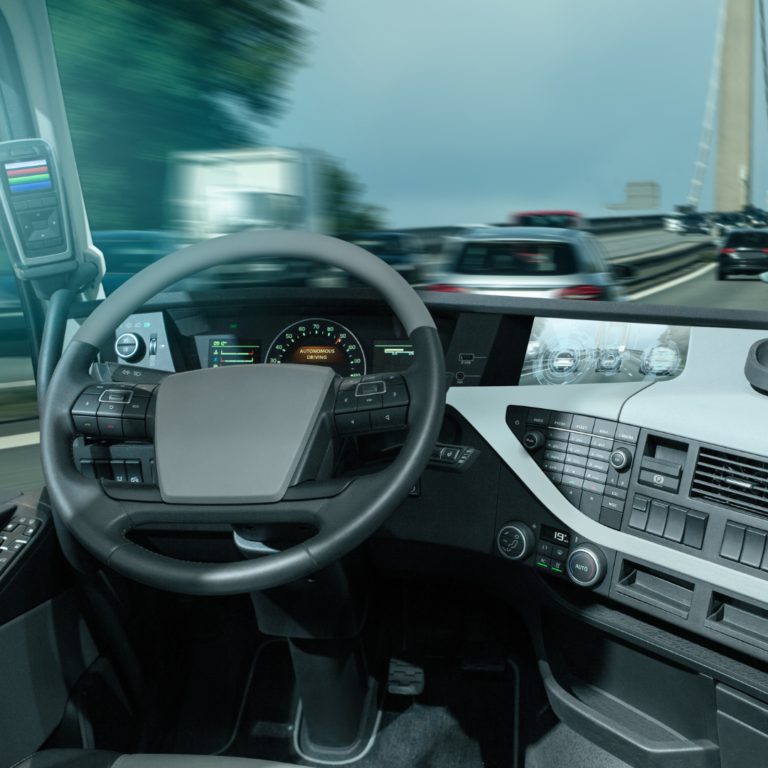Indiana and New York have plans to introduce bills that restrict the presence of these trucks on state highways.
The latest advancements in autonomous trucks have led to an increased inclination towards seeking regulations that restrict the presence of these trucks on state highways. In the coming months, legislators from Indiana and New York have plans to introduce bills for consideration.
In Indiana, Senator Jim Tomes and Representative Cindy Ledbetter support a bipartisan bill to amend autonomous vehicle regulations in the state. The proposal aims to authorize a platoon of electronically coordinated automated vehicles with synchronized speeds and following distances.
The state specifies that an autonomous tractor-trailer cannot operate on roads to transport passengers or goods without the physical presence of a human operator; all operators must comply with state and federal qualifications. The legislation, introduced as HB1022 and SB57 by Representatives Tomes and Ledbetter, aims to adapt laws to new technology and ensure safety on the roads.
On the other hand, in New York, Senator Pete Harckham seeks to change state legislation regarding large autonomous vehicles. Currently, these vehicles are not required to have someone in the cabin capable of taking control in emergencies. However, Harckham has introduced bill S7758, which would require operators to be present in autonomous trucks weighing over 10,000 pounds when traveling on state roads.
The senator emphasizes that this measure would provide job safety for more than 270,000 citizens, representing one in every 27 jobs in the state. The proposal is currently under review in the Senate Transportation Committee.

In September, California Governor Gavin Newsom vetoed a law that sought to prohibit the operation of autonomous vehicles with a gross vehicle weight of at least 10,001 pounds without a physically present safety operator. Newsom pointed out that the existing law provides an adequate regulatory framework, and the DMV has the authority to oversee and take necessary actions to protect public safety in the testing and operation of autonomous vehicles in the state of California.
The implementation of autonomous trucks without safety drivers is a topic that has sparked national debate in recent months. Advocates highlight benefits such as fuel savings, reduced traffic congestion, and improved road safety. Critics express concerns about the interaction between automated and traditional vehicles, questioning the viability of widespread use of this technology. The Independent Owner-Operators Drivers Association recognizes the potential of autonomous technology but continues to address challenges related to commercial vehicles and road safety posed by autonomous trucks.

The story of the first car race in Paris: a historic hit in 1894
Paris stands not only as a cultural and artistic epicenter but also as a pioneer in car racing In the history of automotive racing, Paris

Top states for driving in the United States in 2024
A WalletHub study compared all 50 states to determine the best driving conditions Road safety and quality are central concerns for drivers. And while the

Briefs: marijuana reclassification, vehicle fees, and climate grants
The trucking industry goes through new legislation, taxes and subsidies Questions about the proposed reclassification of marijuana The Owner-Operator Independent Drivers Association (OOIDA) supports the

Impact of traffic pollution: study reveals increase in blood pressure
A study from the University of Washington in Seattle reveals that the main cause of significant increases in blood pressure might be traffic-related gasses A

The benefits and careers of a Commercial Driver’s License
Having a CDL opens multiple doors within the trucking and transportation industry Having a Commercial Driver’s License (CDL) opens multiple doors within the trucking industry,

Sharing the road with a truck: steps to ensure your safety
Caution around blind spots and anticipating truck maneuvers are essential to ensuring everyone’s safety Truck drivers face significant challenges on the road due to their
